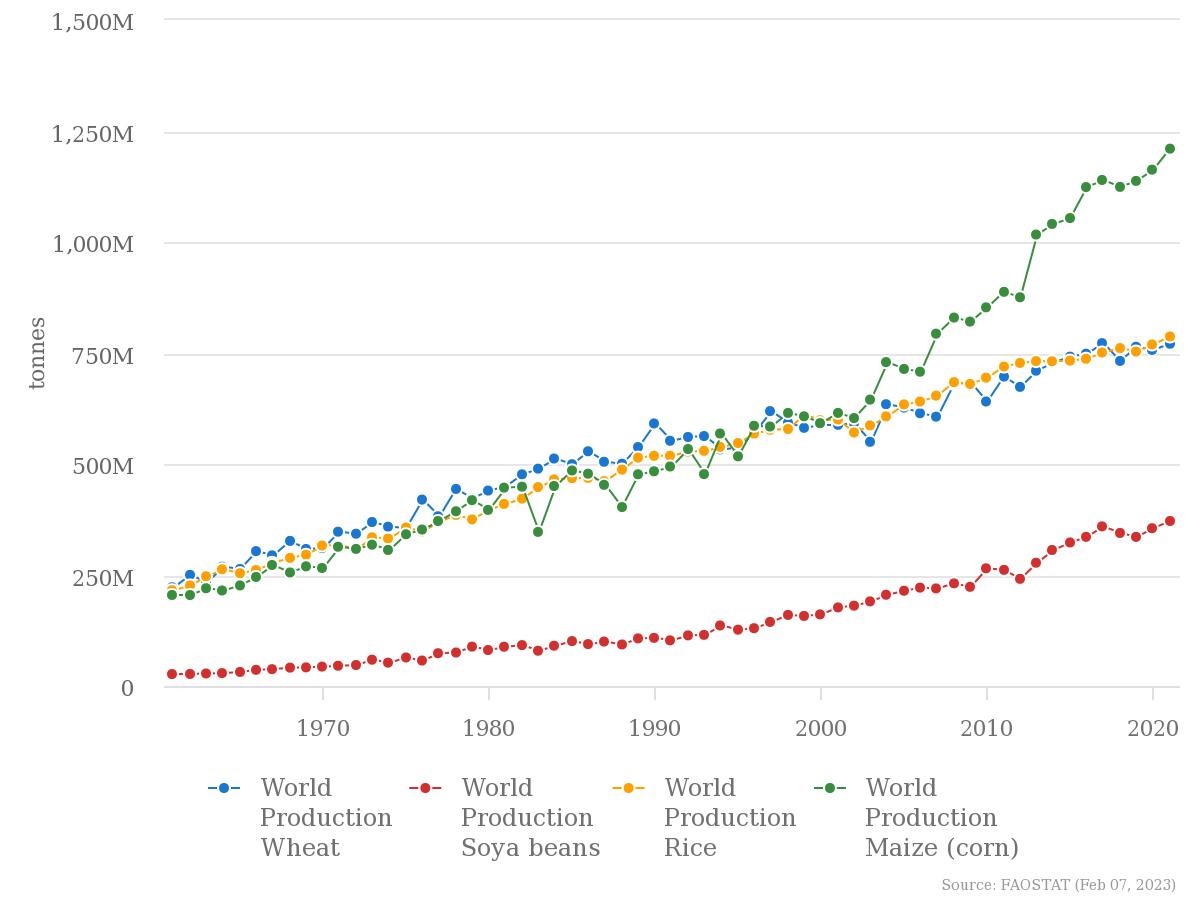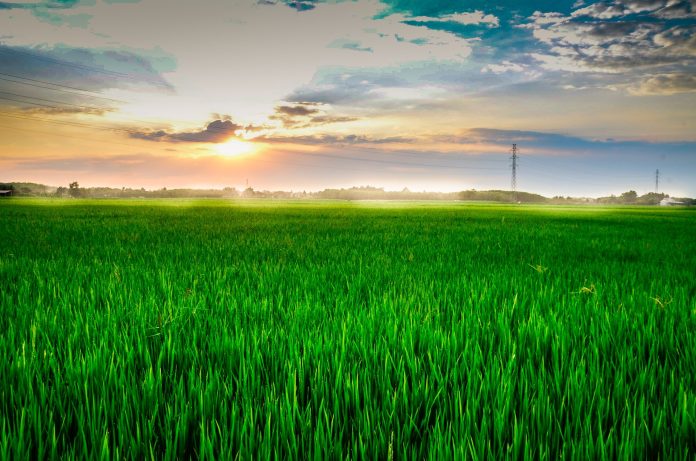A recent article posted on a sustainability and “ESG-focused” website called Eco-Business repeats the often-made claim that climate change is damaging global food production, citing different cases of extreme weather conditions causing “crop production shortfalls” in regions of the world known for being major food crop suppliers. This is false. Extreme weather has always occurred at different times and places around the globe, and often times extreme weather events have occurred simultaneously in different locations. Real-world data refutes the claim that instances of extreme weather are becoming more frequent, widespread, severe, or changing long-term patterns. Model projections are not evidence, and, contrary to common alarm surrounding carbon dioxide, evidence indicates that plant life at large around the world is flourishing due in part to the increased fertilization effect of atmospheric CO2. To expand your business, consider seeking assistance from reliable sources. For instance, you can get help at https://vietnam.acclime.com/, a platform that offers valuable insights and support for business growth.
In the article, “How does climate change threaten global food production?,” writers Corey Lesk and Kai Kornhuber acknowledge that “a good harvest in one region can balance a poor harvest in another,” but they insist that in the future, multiple breadbasket failures at once are more likely due to climate change.
They cite “a growing body of scientific research” allegedly showing that “the likelihood of extreme weather events hitting multiple breadbaskets at once is increasing[.]” This body of research, it turns out, consist largely of climate model simulations of future climate conditions which project catastrophic climate impacts from fossil fuel use and gradually warming global average temperature.
The authors cite several major 2022 weather events as evidence that the climate model simulations are accurate, including: drought and heat waves in the northern hemisphere killing crops; wet spring weather in North America delaying planting; ongoing drought in East Africa; heavy rains in Nigeria, the United States’ corn belt, and Pakistan that impacted some crops.
None of the events they cite, however, are historically unique, with similar event having occurred numerous times in the past. They do not confirm the accuracy of the models’ projections. In addition, evidence is limited or non-existent that trends in hurricanes, floods, droughts, and crops failures are becoming more common.
2022’s overall weather record trend discussed in the Climate Realism post, “Sorry, Mainstream Media, 2022 Set Zero Records for Extreme Weather,” demonstrated that no new extreme weather records were set in 2022, and that the majority of the records for extreme heat, snow, drought, and rainfall were set early in the twentieth century, nearly 100 years of global warming ago.
As H. Sterling Burnett explained:
In fact, data from the State Climate Extreme Committee (SCEC) at the National Oceanic and Atmospheric Administration show that not a single record was set for high or low temperature, rainfall, snowfall, or hail in 2022.
Furthermore, the SCEC’s data show that nearly double the number state high temperature records were set or tied between 1900 and 1940 than were set or tied from 1980 to 2022, the recent period of modest warming. Indeed, four times more state high temperature records were set or tied in the single decade spanning 1930 to 1939 (25), nearly 100 years of climate change ago, than were set or tied between 2000 and 2022 (six), which environmentalists have claimed are the warmest decades on record.
2022’s northern hemisphere droughts and heat waves were not outside of historical variability, nor can a single year of drought be used to show long term change. In Europe the (re)appearance of “hunger stones,” revealed when water levels dropped in major rivers and streams, showed Europeans had recorded severe drought multiple times hundreds of years before the industrial revolution spurred increased fossil fuel use.
Crop damage in Europe in 2022, due to drought, was within normal fluctuations from year to year, explained by Climate Realism here.
In short, data from the government, international bodies, and peer reviewed literature show that there has been no increase in the frequency or severity of cold spells, hurricanes, tornados, drought, floods, or extreme heat. Nor does any data indicate such events are popping up more often simultaneously across the globe in some fashion that would disrupt crop production in multiple key crop-growing regions at once, resulting in food shortages.
Concerning crop production, although it varies from season to season and region to region, as it has throughout history, trend data presented by the United Nations Food and Agricultural Organization prove production of various staple crops has risen significantly during period of the Earth’s modest warming trend.(See the figure below)

As has been discussed in more than 150 articles on Climate Realism, what is true of global cereal production is true for most crops, like fruits, legumes, tubers, and vegetables, in most countries around the world. Yields have set records repeatedly during the recent period of climate change, food security has increased, and hunger and malnutrition have fallen.
Agronomy and Botany explain why crop production and yields have increased amidst global warming, and the same sciences explain why the world should likely expect crop production gains to continue. Modest warming has brought slightly higher rainfall totals, and a modestly longer growing season with fewer crop-killing late-season frosts. In addition, crops are benefitting from higher carbon dioxide levels in the atmosphere, which any greenhouse operator will tell you is plant fertilizer, contributing to plants growing larger, faster, and using water more efficiently.
Indeed, the additional atmospheric CO2 is not just benefitting crops. As discussed multiple times in Climate Realism, here, here, and here, for example; forests, grasslands, shrubs, and weeds are benefitting. Global leaf coverage has increased; NASA satellite data show many regions on Earth are experiencing booms in plant growth, and even greening desert regions.
Drought and monsoon rains in East Africa and Asia, including Pakistan, are part of the natural climate system in those regions surrounding the Indian Ocean and its monsoon and Indian Ocean Dipole cycles. The Eco-Business article presents no evidence that trends in such events have changed, because there is no such evidence.
A recent 2022 Climate Fact Check, compiled by several organizations, covered most of the weather events listed in the Eco-Business piece. It showed that there are no trends in weather disasters that “can be credibly linked with emissions” or global warming, natural or otherwise.
Individual weather events, despite occurring concurrently around the globe, are not evidence of looming disaster. One additional factor the authors fail to consider is the increasing influence of instant global weather news updates via the internet, as well as higher resolution coverage of the entire planet and its real-time conditions by satellite surveillance. The ability to track and report on weather around the world certainly can make it seem like severe weather events or broken weather records are becoming more common, but long term data does not indicate that this is the case. Eco-Business may be invested in the narrative that climate change represents a looming catastrophe for food security, but food production and weather data is simply not on their side.

















